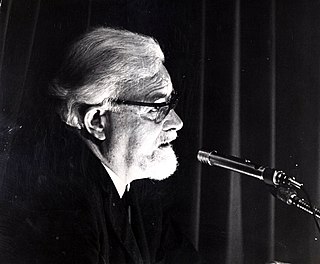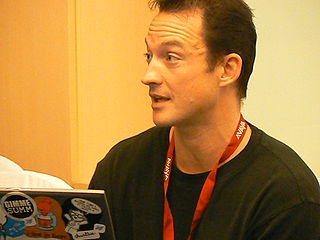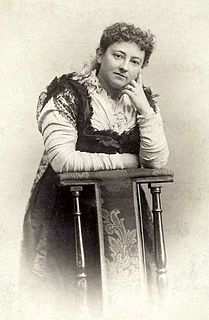A Quote by Honore de Balzac
Fools gain greater advantages through their weakness than intelligent men through their strength. We watch a great man struggling against fate and we do not lift a finger to help him. But we patronize a grocer who is headed for bankruptcy.
Related Quotes
Strength must build up, not destroy. It should outdo itself, not others who are weaker. Used without responsibility, it causes nothing but harm and death. I can lift the heaviest weights, but I can not take the responsibility off my shoulders. Because the way we use our strength defines our fate. What traces will I leave on my path into the future? Do we really have to kill in order to live? My true strength lies in not seeing weakness as weakness. My strength needs no victims. My strength is my compassion.
The great advantages of simulation and dissimulation are three. First to lay asleep opposition and to surprise. For where a man's intentions are published, it is an alarum to call up all that are against them. The second is to reserve a man's self a fair retreat: for if a man engage himself, by a manifest declaration, he must go through, or take a fall. The third is, the better to discover the mind of another. For to him that opens himself, men will hardly show themselves adverse; but will fair let him go on, and turn their freedom of speech to freedom of thought.
Strength, strength is what the Upanishads speak to me from every page. This is the one great thing to remember, it has been the one great lesson I have been taught in my life; strength, it says, strength, O man, be not weak. Are there no human weaknesses? - says man. There are, say the Upanishads, but will more weakness heal them, would you try to wash dirt with dirt? Will sin cure sin, weakness cure weakness? Strength, O man, strength, say the Upanishads, stand up and be strong.
It is true that some have greater power of resistance than others, but everyone has the power to close his heart against doubt, against darkness, against unbelief, against anger, against hatred, against jealousy, against malice, against envy. God has given this power unto all of us, and we can gain still greater power by calling upon Him for that which we lack. If it were not so, how could we be condemned for giving way to wrong influences?
All intelligent beings who are crowned with crowns of glory, immortality, and eternal lives must pass through every ordeal appointed for intelligent beings to pass through, to gain their glory and exaltation. Every calamity that can come upon mortal beings will be suffered ... to prepare them to enjoy the presence of the Lord. ... Every trial and experience you have passed through is necessary for your salvation.
When the injustice is great enough, justice will lend me the strength needed to correct it. None may stand against it. It will shatter every barrier, sunder any shield, tear through any enchantment, and lend its servant the power to pass sentence. Know this: There is nothing on all the Planes that can stay the hand of justice when it is brought against them. It may unmake armies. It may sunder the thrones of gods. Know that for all who betray justice, I am their fate. And fate carries an executioner's axe.
We all enter the world little plastic beings, with so much natural force, perhaps, but for the rest--blank; and the world tells uswhat we are to be, and shapes us by the ends it sets before us. To you it says--Work; and to us it says--Seem! To you it says--As you approximate to man's highest ideal of God, as your arm is strong and your knowledge great, and the power to labour is with you, so you shall gain all that human heart desires. To us it says--Strength shall not help you, nor knowledge, nor labour. You shall gain what men gain, but by other means. And so the world makes men and women.
Economic man and the Calvinist Christian sing to each other like voices in a fugue. The Calvinist stands alone before an almost merciless God; no human agency can help him; his church is a means to political and social organization rather than a bridge to deity, for no priest can have greater knowledge of the divine way than he himself; no friend can console him - in fact, he should distrust all men; in the same fashion, Economic Man faces a merciless world alone and unaided, his hand against every other's.
GraceQuest is a gripping story of one man's (and his family's) struggle with tremendous weakness and pain, but it is also a narrative theodicy--defense of God's goodness in spite of the undeniable reality of evil. . . . This is an honest and hard-hitting book about God's grace in and through tremendous loss of health and strength. Readers will find hope and help here if they are open to its message about the God-given 'strength to suffer well.'







































